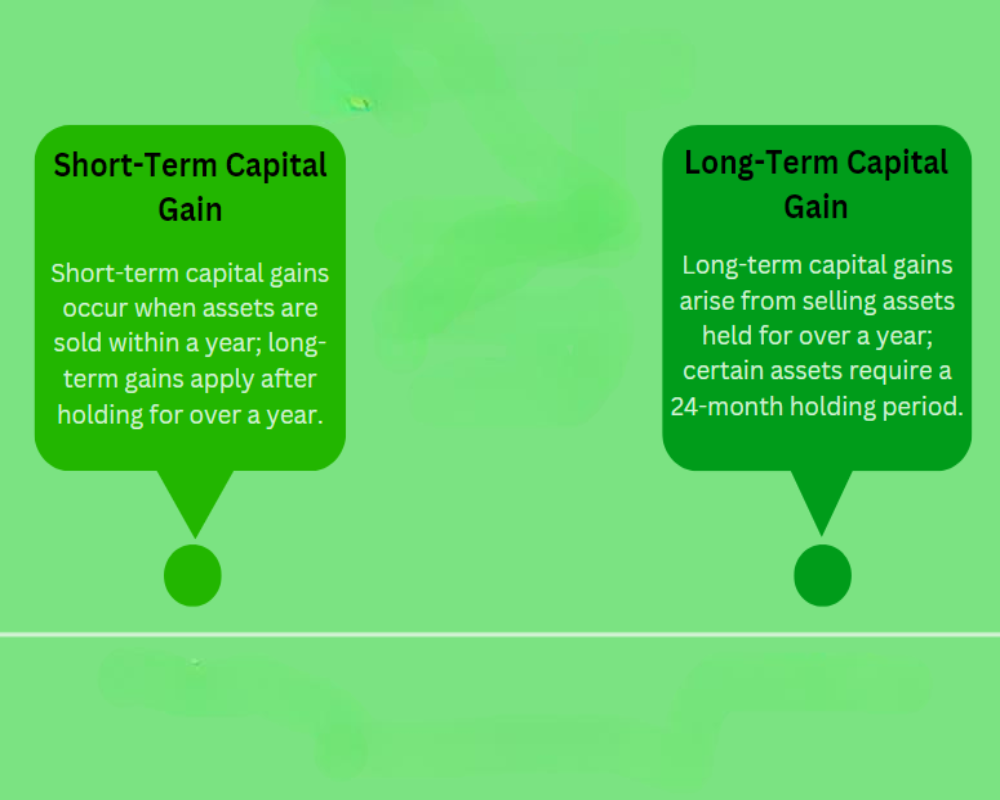Short-Term Capital Gains Tax Rates (Held Less Than 1 Year)
Short-term capital gains apply when land or other assets are sold within one year of acquisition. These gains are taxed at the same rate as ordinary income, based on the seller’s federal income tax bracket.
- Taxed at 10% to 37% depending on income level
- No preferential rate—treated like wages or business income
- Applies to investors, individuals, and entities that sell quickly after purchasing
Long-Term Capital Gains Tax Rates (Held 1 Year or More)
Long-term capital gains apply when property is held for at least one year before sale. These gains benefit from reduced tax rates compared to ordinary income, encouraging long-term investment.
- 0%, 15%, or 20% federal tax rate, depending on taxable income
- Most individuals fall into the 15% bracket for gains between $44,626 and $492,300 (2024 thresholds for individuals)
- 3.8% Net Investment Income Tax (NIIT) may apply to higher earners
State Taxes and Surcharges May Also Apply
In addition to federal taxes, state capital gains tax rates may vary significantly based on location. Some states follow federal rates, while others impose flat or progressive rates.
- States like California tax gains as ordinary income (up to 13.3%)
- No state capital gains tax in states like Florida, Texas, or Nevada
- Municipal surcharges or local investment taxes may also apply in certain jurisdictions


